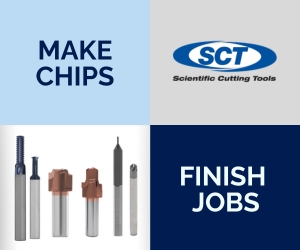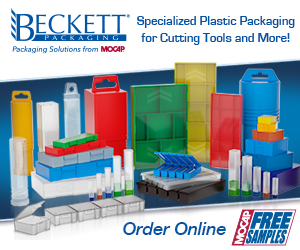 This year marks the 30th anniversary of Haas Automation Inc.’s first vertical machining center, the VF-1. The “V” in the model name stands for vertical – an industry-standard designation for a vertical mill – and company founder Gene Haas added “F1” to the name to unofficially designate it as the company’s “Very First One.”
This year marks the 30th anniversary of Haas Automation Inc.’s first vertical machining center, the VF-1. The “V” in the model name stands for vertical – an industry-standard designation for a vertical mill – and company founder Gene Haas added “F1” to the name to unofficially designate it as the company’s “Very First One.”
Developed in 1987 and introduced at IMTS 88 in Chicago, the Haas VF-1 established an industry milestone by being the very first American-built vertical machining center to sell for less than $50,000 – an unheard of price at that time. With a published price of $49,900 – published pricing was another Haas very first – the Haas VF-1 quickly became the industry benchmark for affordable CNC technology.
Factoring for inflation, that $49,900 starting price would be nearly $104,000 today. But 30 years later, the 2018 Haas VF-1 still sells for less than $50,000 – in fact, it’s just $46,995 – and Haas Automation is one of the world’s leading manufacturers of CNC machine tools, with an extensive lineup of more than 100 high-performance products. Prices for all Haas machines and options are published online for all to see – something no other machine tool builder can claim – and customers can even build and price their new machine at HaasCNC.com.
To commemorate 30 years of the VF-1 – and other Haas very firsts – Haas Automation has launched a year-long Very First campaign that will include worldwide demo day events, a video series documenting both Haas and customer very firsts, and much more. The campaign will culminate with the return of machine No. 1 – the Very First Haas VF-1 – to IMTS 2018 in Chicago, where the story began.
All Haas products are manufactured in the company’s 1.1-million-square-foot facility in Southern California, and distributed through a worldwide network of more than 170 Haas Factory Outlets (HFOs). Each HFO has complete showroom facilities, factory-trained service personnel, extensive spare-parts inventories, and fully stocked service vehicles to provide the industry’s best service and support.
At present, there are roughly 200,000 Haas CNC machines and 100,000 Haas rotary products in use around the world. In 2018, Haas Automation will build more than 15,000 machines, with around 60 percent of them going to international markets.
Contact Details
Related Glossary Terms
- computer numerical control ( CNC)
computer numerical control ( CNC)
Microprocessor-based controller dedicated to a machine tool that permits the creation or modification of parts. Programmed numerical control activates the machine’s servos and spindle drives and controls the various machining operations. See DNC, direct numerical control; NC, numerical control.
- machining center
machining center
CNC machine tool capable of drilling, reaming, tapping, milling and boring. Normally comes with an automatic toolchanger. See automatic toolchanger.
- milling machine ( mill)
milling machine ( mill)
Runs endmills and arbor-mounted milling cutters. Features include a head with a spindle that drives the cutters; a column, knee and table that provide motion in the three Cartesian axes; and a base that supports the components and houses the cutting-fluid pump and reservoir. The work is mounted on the table and fed into the rotating cutter or endmill to accomplish the milling steps; vertical milling machines also feed endmills into the work by means of a spindle-mounted quill. Models range from small manual machines to big bed-type and duplex mills. All take one of three basic forms: vertical, horizontal or convertible horizontal/vertical. Vertical machines may be knee-type (the table is mounted on a knee that can be elevated) or bed-type (the table is securely supported and only moves horizontally). In general, horizontal machines are bigger and more powerful, while vertical machines are lighter but more versatile and easier to set up and operate.








